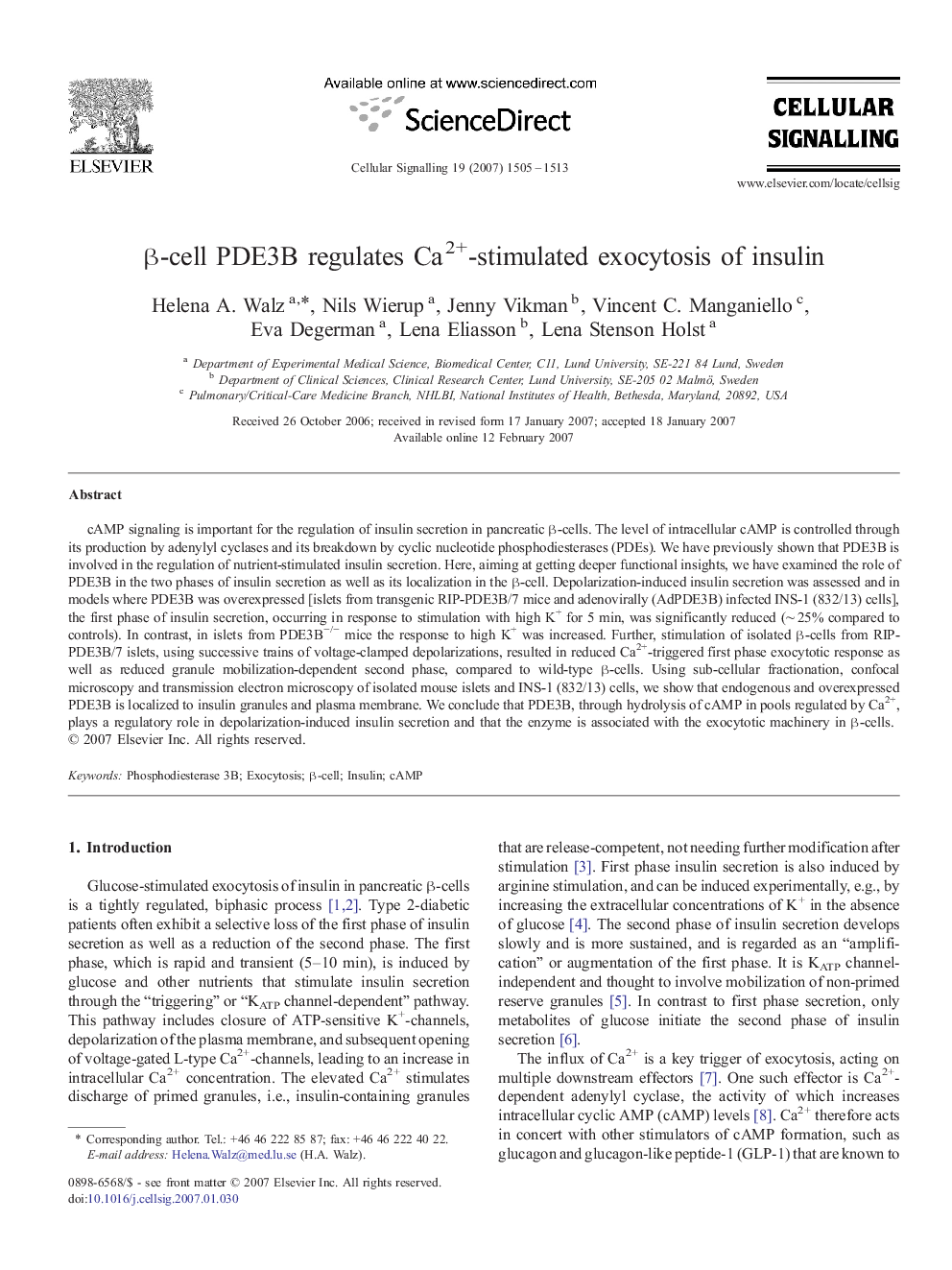| Article ID | Journal | Published Year | Pages | File Type |
|---|---|---|---|---|
| 1964907 | Cellular Signalling | 2007 | 9 Pages |
Abstract
cAMP signaling is important for the regulation of insulin secretion in pancreatic β-cells. The level of intracellular cAMP is controlled through its production by adenylyl cyclases and its breakdown by cyclic nucleotide phosphodiesterases (PDEs). We have previously shown that PDE3B is involved in the regulation of nutrient-stimulated insulin secretion. Here, aiming at getting deeper functional insights, we have examined the role of PDE3B in the two phases of insulin secretion as well as its localization in the β-cell. Depolarization-induced insulin secretion was assessed and in models where PDE3B was overexpressed [islets from transgenic RIP-PDE3B/7 mice and adenovirally (AdPDE3B) infected INS-1 (832/13) cells], the first phase of insulin secretion, occurring in response to stimulation with high K+ for 5 min, was significantly reduced (â¼Â 25% compared to controls). In contrast, in islets from PDE3Bâ/â mice the response to high K+ was increased. Further, stimulation of isolated β-cells from RIP-PDE3B/7 islets, using successive trains of voltage-clamped depolarizations, resulted in reduced Ca2+-triggered first phase exocytotic response as well as reduced granule mobilization-dependent second phase, compared to wild-type β-cells. Using sub-cellular fractionation, confocal microscopy and transmission electron microscopy of isolated mouse islets and INS-1 (832/13) cells, we show that endogenous and overexpressed PDE3B is localized to insulin granules and plasma membrane. We conclude that PDE3B, through hydrolysis of cAMP in pools regulated by Ca2+, plays a regulatory role in depolarization-induced insulin secretion and that the enzyme is associated with the exocytotic machinery in β-cells.
Related Topics
Life Sciences
Biochemistry, Genetics and Molecular Biology
Biochemistry
Authors
Helena A. Walz, Nils Wierup, Jenny Vikman, Vincent C. Manganiello, Eva Degerman, Lena Eliasson, Lena Stenson Holst,
